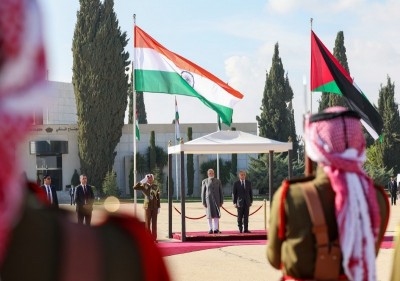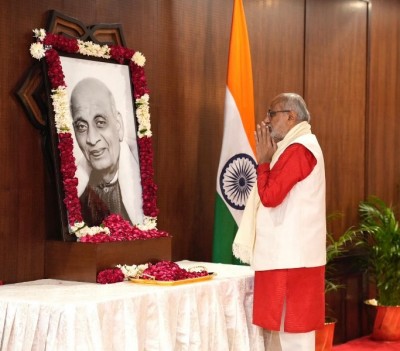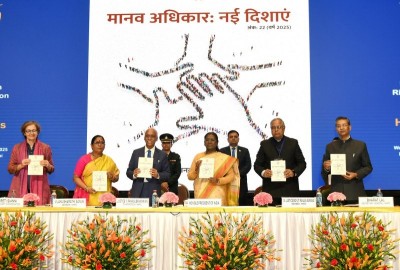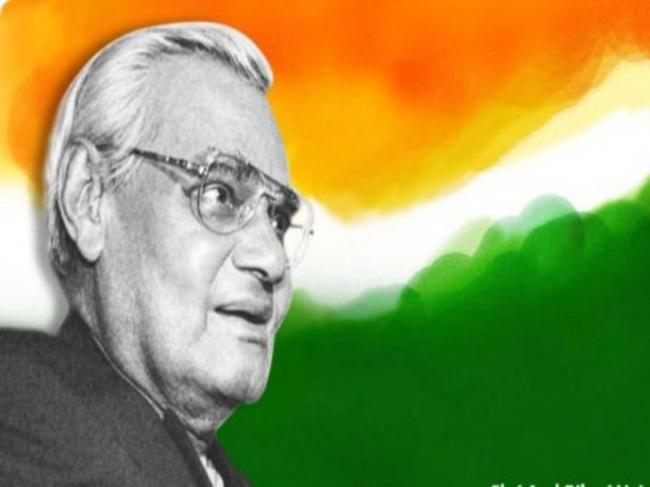
Atal Bihari Vajpayee (1924-2018): A Life Extraordinaire
Three-time Prime Minister and one of the founders of the Bharatiya Janata Party (BJP), which presently rules the country, Atal Bihari Vajpayee, passed away today at the age of 93. As India mourns the death of a leader and a statesman who rose above demagogy, IBNS recounts his mesmerising political journey...
Born on Dec 25 at Gwalior, which is now in Madhya Pradesh, Vajpayee did his post-graduation with Political Science from DAV College, Kanpur. Little did the people around him know then that he would not restrict himself just being a student of political science but be the centre of the Indian politics for several decades.
For the first time Vajpayee tasted the cons of the political field when he along with his brother was arrested by the British during the Quit India Movement. Though later he was released upon the guarantee that he will not oppose the British rule, Vajpayee reinvented himself only after Independence.
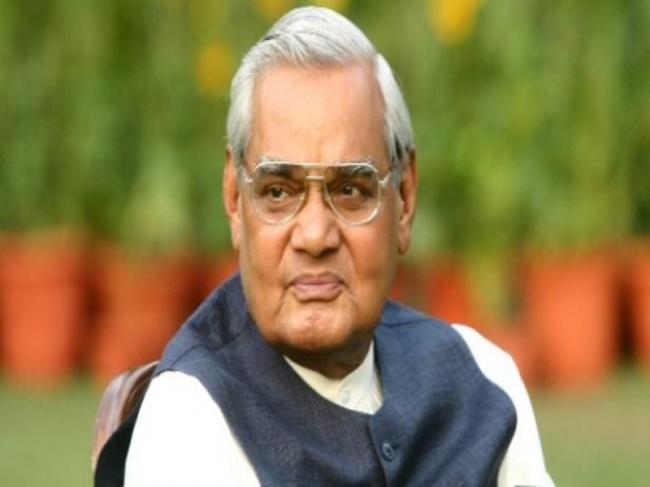
In 1951, three years after the Rashtriya Swayamsevak Sangh (RSS)- a Hindu right-wing organisation- was banned for its alleged role in the assassination of the Father of the Nation, Mahatma Gandhi, Vajpayee found himself attached with the Bharatiya Jana Sangh, which was the political wing of the RSS.
Vajpayee was in the forefront of the Jana Sangh along with Deendayal Upadhyaya.
Vajpayee, who was a follower and an aide of party leader Syama Prasad Mukherjee, lost the Lok Sabha election in Mathura in 1957.
But the defeat never tainted his image. The responsibility of the Jana Sangh fell on his shoulder after Upadhyaya passed away. By then, Vajpayee was a strong leader of the Jana Sangh. In 1968, he became the national president of the Jana Sangh.
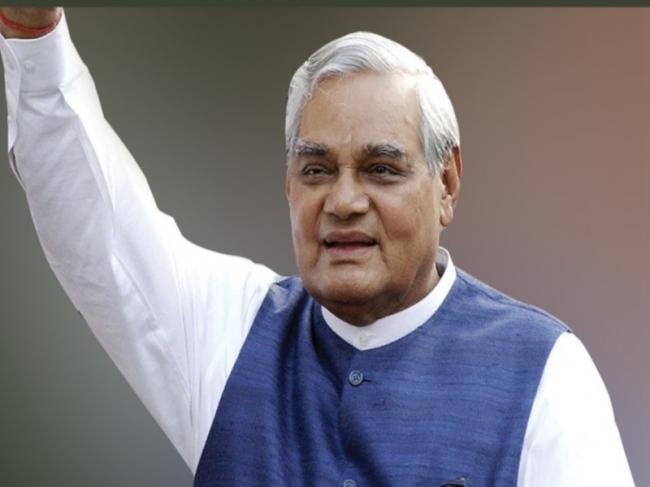
The road to the Prime Minister's chair was not all roses but thorns. In 1975-1977, during the national Emergency imposed by then Prime Minister Indira Gandhi, Vajpayee was among several opposition leaders who were arrested.
In 1977, when the General Elections were held for the first time after the emergency period, Indira Gandhi was defeated by a United Opposition, which was primarily propelled by social reformer Jayaprakash Narayan.
Vajpayee merged his party with Morarji Desai's Janata Party to contest the election, which was lost by the Congress. Following the win, Desai became the first non-Congress Prime Minister, with Vajpayee assuming the post of External Affairs Minister.

During Desai's brief stint as the Prime Minister, Vajpayee was not only seen playing a formidable role as the Minister, but also shared stage with a completely different ideology based political person like Jyoti Basu, who became the West Bengal Chief Minister in 1977. Needless to mention, Vajpayee had a cordial relationship with several leaders across the political spectrum.
With Desai's resignation as the Prime Minister in 1979, the Janata Party also dissolved. Following Indira Gandhi's return to power in the next General Elections, Vajpayee in 1980 joined Jana Sangh and RSS members to give birth to a new anti-Congress party, the Bharatiya Janata Party (BJP).
Vajpayee was accompanied by his long-term friends LK Advani and Bhairon Singh Shekhawat in the process of forming the new party.
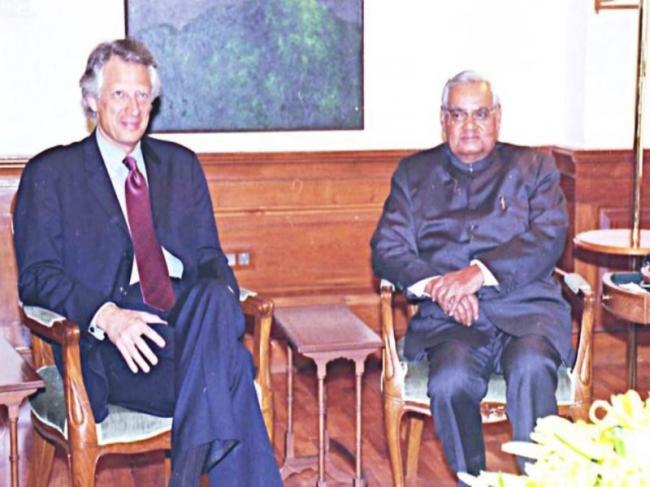
Vajpayee remained in the forefront in the party when the BJP failed miserably in the 1984 Lok Sabha elections, which was swept by the Congress riding on the emotions of Indira Gandhi's assassination.
The BJP was reduced to just two seats in this vast country in 1984.
Though Rajiv Gandhi's Congress could not capitalise on the huge success in 1984 polls and eventually had to bite the dust even before 1989, Vajpayee had to wait till 1996 to become the first BJP Prime Minister.
Gaining prominence by 1995, Vajpayee-led BJP emerged as the single largest political party in the country in 1996 Lok Sabha elections. Though Vajpayee took oath as the Prime Minister, he failed to garner the support of other political parties to remain in the office. Unable to prove his majority, Vajpayee had to resign after 13 days.
Between 1996 and 1998, the country had two United Front governments but none survived for long.
In 1999, the BJP returned to power and this time Vajpayee could muster the support of other political parties to lead a coalition government.
But once again, Vajpayee had to taste the bitter medicine of a coalition government when J Jayalalithaa's All India Anna Dravida Munnetra Kazhagam (AIADMK) withdrew its support to the Centre after 13 months.
But the despair was not long this time. In the next General Elections, the BJP-led National Democratic Alliance (NDA) secured way above the majority mark by winning 303 seats in a 543-member Lok Sabha. Vajapyee became the country's Prime Minister for the third term, which ran for five years with no interruption.
Being enthused by the BJP's "feel good" factor across the nation, Vajpayee dissolved the Lok Sabha and called the General Elections early in 2004. However, the "feel good" factor and the slogan of "India Shining" soon evaporated with the widespread campaign by then Congress president Sonia Gandhi.
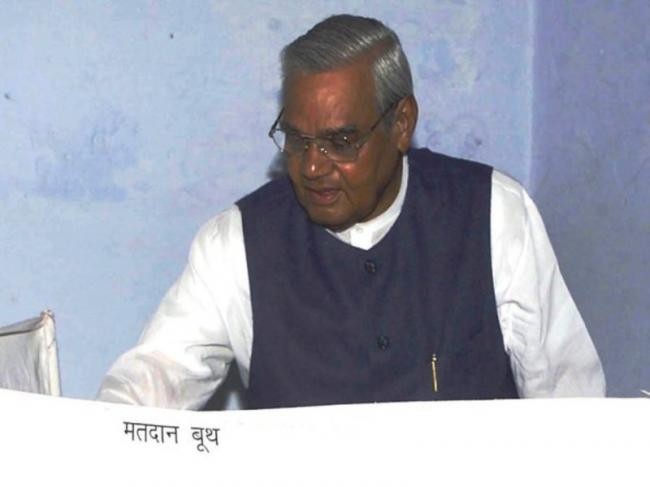
As the elections result came out, the BJP had lost half of its seats while the Congress returned to power with several of its allies including the Leftist parties.
Taking the moral responsibility of the BJP's defeat, Vajpayee left the Opposition leader's role to LK Advani. A year later, the former Prime Minister also hanged his boots from political journey by transferring the party's baton to Advani and other BJP leader Pramod Mahajan.
Vajpayee despite being a voice of the Hindu nationalist BJP was critical of the demolition of the disputed Ram Janmabhoomi Babri Masjid structure in 1992.
He was consulted even by the Opposition leaders in foreign policy matters. Many opposed to the BJP would also call him a "right man in the wrong party."
It was also in his tenure that India conducted its second nuclear test in 1998 in Rajasthan's Pokhran, which led to sanctions against India by countries including the US and Japan.
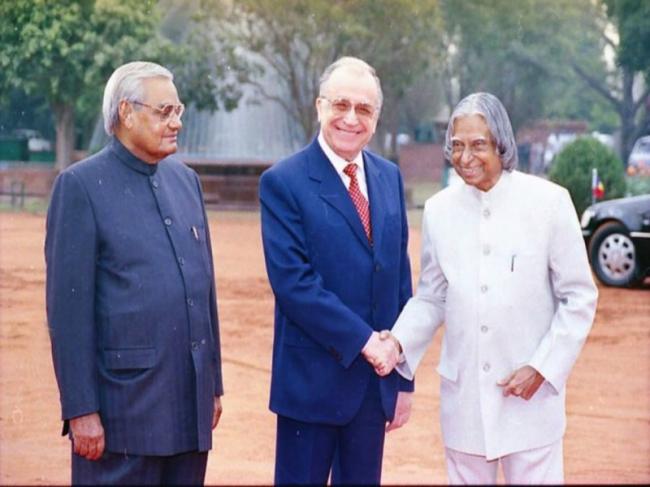
His tenure was marked by the Kargil War of 1999 and the post-Godhra riots in Gujarat when his government came under sharp attack. He had famously told then Gujarat Chief Minister Narendra Modi to do "Rajdharma" (to be impartial as a king) in containing the communal riots in which the Muslims suffered mostly.
It was also under his tenure that India undertook the National Highways Development Project (NHDP) to upgrade and widen major highways in the country to a higher standard.
Vajpayee was credited for his bold leadership as the Prime Minister during the Kargil War (1999), in which India had defeated Pakistan.
The war broke out after Pakistan had infiltrated in Kashmir Valley to only being retaliated by Indian soldiers, naming the conflict as Operation Vijay.
.jpg)
During the last part of his life, Vajpayee, who was unmarried, had suffered due to his illness. He also had to undergo knee transplantation. In 2009, Vajpayee could not even actively campaign for the party after suffering a stroke which impaired his speech.
He was awarded with Padma Vibhushan in 1992 and Bharat Ratna, the highest civilian honour, in 2015.
(Writing by Souvik Ghosh)
Support Our Journalism
We cannot do without you.. your contribution supports unbiased journalism
IBNS is not driven by any ism- not wokeism, not racism, not skewed secularism, not hyper right-wing or left liberal ideals, nor by any hardline religious beliefs or hyper nationalism. We want to serve you good old objective news, as they are. We do not judge or preach. We let people decide for themselves. We only try to present factual and well-sourced news.





